Having Troubles With Falling Asleep
Do you ever go to bed, feeling tired, but then you just lie there, tossing and turning, staring at the ceiling, unable to fall asleep? This is a common problem that can have many different causes. Troubles with falling asleep can be a result of stress, caffeine intake, hormonal imbalance, or even something as obvious as disturbing sounds. Let’s look at the most common causes of problems with falling asleep.
Stress and sleep
Stress is probably the most common reason why people are unable to fall asleep. Stress will make your body tense and produce adrenaline, a hormone that will keep you alert and, consequently, awake. Adrenaline is also known as a “flight or fight” hormone. Normally, it’s released by your body in times of danger and emergency. The hormone then increases your heart rate and blood sugar, and boosts the supply of oxygen and glucose to your brain and muscles.
The purpose of adrenalin is to prepare your body for a dangerous situation. Obviously, if your body keeps releasing it while you’re lying in bed, you won’t be able to fall asleep.
Having a major problem or stress in your life (e.g. a divorce or financial problems) can make sleeping very difficult. You may have to take extra care of yourself at such times. Here are some ideas which may help you make your anxieties more manageable:
Journaling
Write down your worries in a journal. Write down what you can do to help the situation and then turn it over to God, or a higher power in the Universe. Quite often, problems get solved once we actually bring them to consciousness, and this may well be the case for you.
Meditation and prayer
These are ancient forms of stress release. You may find them helpful. Neither of them requires a specific religious belief, but they can be spiritually calming.
Create ‘worry’ time
Some people find it useful to put aside some time in the day (say 30 minutes) for worrying. Although this can sound counter-intuitive, it is actually very practical. It means that when any worrisome thoughts cross your mind, for example, when you are trying to get to sleep, you can say to yourself, I will think about that at my ‘worry’ time.
Which good sleep habits can be developed?
If you'realways tiredbecause of the way you sleep, it's about time you do something about it. In order to be able to drop off to sleep more easily, here are some of the things you may consider doing:
- Create a ‘sleep only’ zone in your bed. Keep your bed for sleep and sexual activity only. Don’t use a laptop in bed, don’t watch television and don’t have long, difficult conversations while lying on your bed. If you reserve your bed for sleeping only, you will be conditioned to fall asleep when you go to bed.
- Avoid violent /horror films or books in the evening. These will only make your adrenal glands work overtime, revving you up for fight or flight. Try to avoid television altogether in the hour before bed, and read an uplifting, relaxing book.
- Prepare for bed at least an hour before you actually retire. This should include a wind-down time, in which you relax and de-stress. Practice a relaxation technique, such as progressive muscle relaxation, or listen to relaxation tape. Have a warm bath, with Epsom salts in it.
- Keep regular hours. Try to go to bed at the same time every night. This way your body will develop positive habits.
- Avoid caffeine from about 4 pm. If you can avoid it altogether, so much the better. Remember that caffeine isn’t just in coffee it’s also present in tea, colas, and some chocolate as well. It pays to read the label on food before you consume it.
- While adrenaline is naturally released by your body, there are many other chemicals keeping us awake at night that we ingest voluntarily. The most common one is caffeine, but other over-the-counter stimulants and medications may work in the same way. The purpose of these chemicals is to keep us awake. So if you’re having hard time falling asleep, you really should stay clear of them.
- Don’t take a heavy meal before bedtime, as this will divert energy to digesting it. Have a light snack instead.
- Try to take some tryptophan rich foods before bedtime as they naturally make you sleepy. This amino acid is important, because our body uses it to synthesize serotonin, which helps us fall asleep. Tryptophan can be found in turkey, lentils, milk, soya beans and tuna.
Herbal remedies for falling asleep
Bear in mind that prescription drugs can interfere with sleep patterns and so ideally should only be used in the short run, for resetting your sleep ‘clock’. Also remember that many prescription sleeping pills can be addictive. This includes (among others) Proson, Ambien, Halcion and Doral.
Here are some herbal remedies that can help you fall asleep more easily:
Suntheanine
The active agent of Suntheanine is the amino acid, theanine, which is an extract of green tea. It has a calming, meditative effect on the brain as it induces alpha waves. It can also be used during the day as a stress reliever.
Dosage: 200 – 500 mgs at bedtime
Wild lettuce
This is very good in cases of anxiety-related insomnia.
Dosage: 30 – 120 mgs at bedtime
Jamaican dogwood
This has a calming effect.
Dosage: 12-48 mgs at bedtime
Hops
One of the ingredients of beer, hops is a mild sedative and has a muscle relaxing effect.
Dosage: 30-120 mgs at bedtime
Passiflora
Passiflora or Passionflower has a calming effect and works particularly well on muscle spasms.
Dosage: 80 - 360 mgs at bedtime
Valerian
Valerian works especially well if taken over an extended period of time, rather than just one night as the effects seem to be cumulative.
Dosage: 200 – 500 mgs at bedtime
Other natural remedies include:
- D-ribose – helps sleep while it creates energy.
- Magnesium and Calcium – take 75 mgs a night to improve sleep. Lower the dosage if you develop diarrhea. You may wish to add 600 mgs of calcium as well.
- 5 –HTP (5 hydroxy-L-Tryptophan) is a precursor of serotonin which calms and makes you feel happy. It is very important not to self-medicate this remedy as is can have side-effects if combined with other medications, so always consult a medical practitioner before taking.
- Lemon Balm – take 160 mgs of lemon balm (Melissa) for a better sleep without a sedative effect.
- Melatonin –this natural hormone produced by the pineal gland is useful for falling asleep. Take in low doses.
If you cannot sleep because of obsessive thoughts, you might like to try 5-H gamma aminobutyric acid (5-H Gaba). This calms the brain, but can take up to a month to work effectively. Start with a dose of 100 mgs with a quarter of an apple and a bite of cheese and increase to 200 mgs if no improvement.
To conclude
There is much you can do to help yourself to fall asleep easily on a regular basis. Use herbs, cultivate good bedroom and sleep habits and reduce stress as much as possible.
[Please seeOptimal bedroom environmentfor more information about creating a cool, dark, quiet bedroom which will promote sleep.]


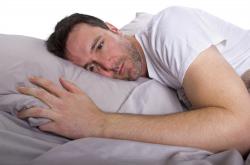


.jpg)
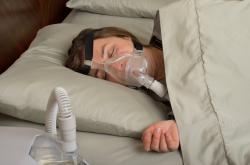
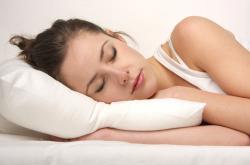
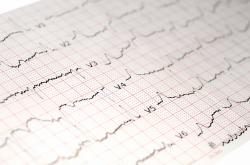
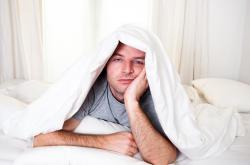
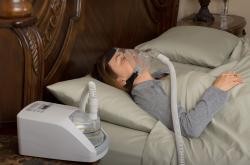







Leave a comment